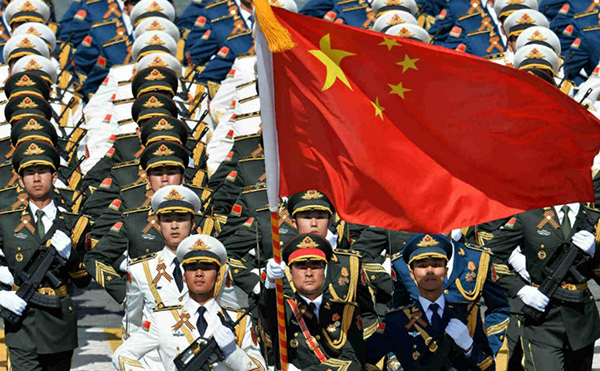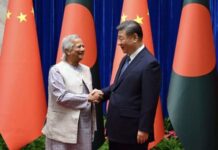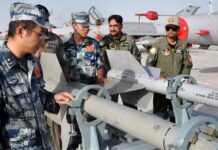By Maj Gen Deepak K Mehta
The Chinese military has adopted a strategy known as the “Three Warfares,” which includes psychological warfare, media warfare, and legal warfare. This strategy aims to shape perceptions, control the narrative and use legal means to gain an advantage over its adversaries.
Psychological warfare, also known as “mind warfare,” involves the use of propaganda and disinformation to influence the attitudes and behaviour of an opponent.
Media warfare involves the use of traditional and social media to shape public opinion and control the narrative. This can include the use of state-controlled media to disseminate propaganda and disinformation, as well as the use of cyberattacks to disrupt or manipulate the flow of information.
Legal warfare involves the use of international law and legal means to gain an advantage over an adversary. This can include the use of legal challenges and diplomatic pressure to achieve strategic goals.
The Chinese government has denied any use of Three Warfares and said it is a western conspiracy theory, but it is widely acknowledged that the Chinese government and military actively use these tactics.
Examples of Legal Warfare
Legal warfare includes the use of international legal challenges and diplomatic pressure to achieve strategic goals. Some specific examples of legal warfare include using:
International arbitration and legal challenges to challenge territorial claims and disputes in the South China Sea.
Diplomatic pressure to prevent other countries from recognizing Taiwan as a sovereign state.
Trade agreements and economic incentives to gain access to resources and markets in other countries.
Legal means to challenge the actions of other countries, such as the Chinese government’s legal challenges to the U.S. government’s imposition of tariffs on Chinese goods.
Legal means to challenge the actions of international organizations, such as the Chinese government’s legal challenges to the jurisdiction of the Permanent Court of Arbitration in disputes in the South China Sea.
Legal means to challenge the actions of foreign companies, such as the Chinese government’s legal challenges to the actions of foreign companies operating in China.
Examples of Media Warfare
Media warfare includes the use of traditional and social media to shape public opinion and control the narrative. Some specific examples include using:
State-controlled media outlets to disseminate propaganda and disinformation, and to promote the government’s views and policies.
Social media platforms to spread disinformation and influence public opinion, such as through the use of bots and fake accounts.
Cyberattacks to disrupt or manipulate the flow of information, such as by hacking into news organizations’ websites and social media accounts.
Legal means to restrict or control access to certain types of information, such as through censorship and the use of strict laws to control the media.
Media outlets to promote a positive image of China and its government, while downplaying or criticizing other countries and their governments.
Media outlets to shape the narrative around China’s territorial claims and disputes in the South China Sea and to challenge the actions of other countries in the region.
Examples of Psychological Warfare
Psychological warfare includes the use of propaganda and disinformation to influence the attitudes and behaviours of an opponent and to create confusion and sow discord among an opponent’s population. Some specific examples of psychological warfare include using:
Propaganda and disinformation to shape public opinion and influence the attitudes and behaviours of military personnel and civilians in other countries, behaviours of people in other countries with regard to China’s territorial claims and disputes and China’s economic and strategic interests, political system and government.
Unrestricted Warfare
In the book “Unrestricted Warfare” written by two Chinese colonels, Qiao Liang and Wang Xiangsui, published in 1999, a strategy for China has been proposed to use in a potential conflict with a more powerful enemy, such as the United States.
Although not an official Chinese strategy, it is based on the idea of using unconventional methods, such as cyber warfare and economic tactics, to circumvent the enemy’s strengths and exploit their weaknesses. The authors argue that China must adapt to new forms of warfare in order to defend itself.
The authors apropose a variety of unconventional methods that China can use in a potential conflict with a more powerful enemy. Some of these methods include:
Cyber warfare: Using computer attacks to disrupt the enemy’s military and civilian infrastructure, as well as to steal sensitive information.
Economic warfare: Using economic means to weaken the enemy’s economy, such as through currency manipulataion, trade embargoes, and investment restrictions.
Psychological warfare: Using propaganda and other means to influence the enemy’s public opinion and undermine their morale.
Terrorism: Using terrorist attacks to create chaos and fear among the enemy population.
Asymmetric warfare: Using unconventional tactics and weapons to exploit the enemy’s vulnerabilities and avoid their strengths.
Lawfare: Using legal means to challenge the enemy’s actions and justify one’s own actions.
China has been investing heavily in cyber warfare capabilities, and have been known for cyber espionage and cyber attacks against other countries. It has also been using economic means to exert influence, such as through its Belt and Road Initiative and its Made in China 2025 plan. Additionally, China has been investing in psychological warfare and has been actively working to shape global perceptions of itself and its actions.


















